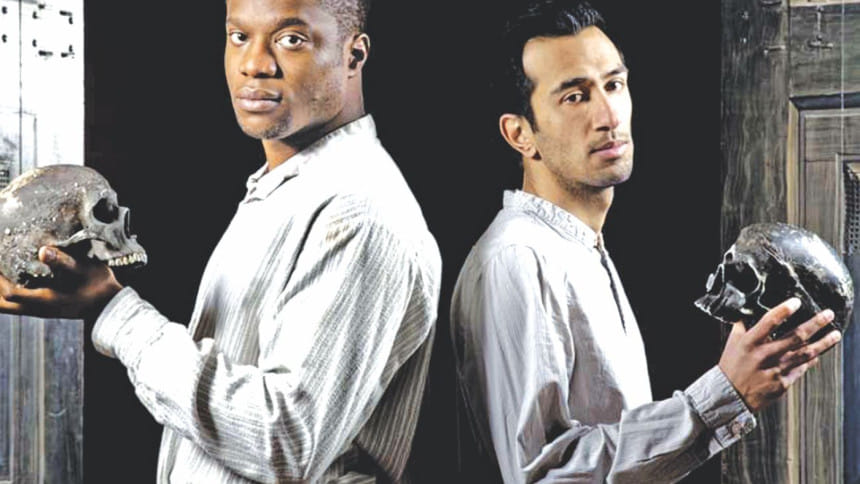A living celebration of Shakespeare's sonnets

400 years after his death, Shakespeare's works still seem inexhaustible as a source of pleasure and a spur to creative collaboration. In Britain this anniversary has spawned a range of high-profile projects, including a series of fictional retellings commissioned by Hogarth Press, and the Globe's Hamlet Globe to Globe tour.
Now Bloomsbury has published On Shakespeare's Sonnets, A Poets' Celebration (http://www.bloomsbury.com/uk/on-shakespeares-sonnets-9781474221580/). Two lecturers at King's College London, Hannah Crawforth and Elizabeth Scott-Baumann, in cooperation with the Royal Society of Literature, invited 30 poets to respond to the sonnets in any way they liked. They present the results here.
I can imagine the potential pitfalls in such a project. Not all poets respond well to commissions, and some may be daunted by the prospect of having to match a Shakespeare sonnet with something of their own. Opening the collection, Roger McGough expresses this sense of inadequacy in a form that nicely matches his meaning. His cento, or patchwork of quotations, skilfully weaves opening lines from fourteen different Shakespeare sonnets into a coherent (and correctly rhymed) confession that concludes 'Alack, what poverty my muse brings forth.'It's a witty and disarming response to the challenge, and a modest introduction to a volume that offers not poverty but a wealth of inspiration.
Part of the fun of this collection lies in the variety of approaches taken by different writers. At one extreme, John Fuller imagines a series of five sonnets that Shakespeare might have written, presenting them here with Elizabethan spellings and pseudo-scholarly footnotes. Others use the traditional iambic meter to capture the rhythms of contemporary speech. Elaine Feinstein's 'Betrayal', which begins: 'Get over it, get a life, my friends implore me,/ sure that revival lies in moving on," is a reminder of the urgent, spoken quality of Shakespeare's verse.
In contrast, Sean O'Brien adopts a more formal voice to explore the theme of vanity: "The mirror is expecting you. You're late./ Should silver blacken, flesh give up its bone,/ Time will attend you still, and after that/ More time, when all your suitors go to dust."
Some of these poets embrace the sonnet structure, some play variations on it, a few engage with their chosen original only through ideas or images. Among those who seem completely at home in the form is the Welsh poet Gillian Clarke, who absorbs its metrical pattern effortlessly in her account of a migrating swallow following its mate 'to the old nest in the barn, remade, mould/ of spittle and pond-sludge snug in its cusp/ as the new year in the mud-cup of the old.' And in a series of four 'Rhapsodies'Andrew Motion weaves sinuous sentences through lines of verse to lyrical effect, moving backwards and forwards through time to reflect movingly on the shock of love and the anticipation of loss: 'and always, with the guilt built into grief,/ the sense of life now lost not lived enough.'Fiona Sampsonavoids formal influence altogether, taking only the phrase 'holds him in chase'as the inspiration for her delightful, mimetic meditation on a couple's movements in sleep.
The range of topics is also refreshingly broad. In a startlingly unexpected response to Sonnet 33 ('Fully many a glorious morning I have seen'), Mimi Khalvatiremembers the onset of her son's schizophrenia:'But how you hid when the sky split, the voices came,/ Each with a face you drew, wild familiars,/ Grotesques that only talking to could tame.' And in '2014/15' Jo Shapcott plays at the edges of both metrical and grammatical structures to offer a powerful visionary glimpse of a coming year that seems to allude, among things, to digital surveillance and Europe's refugee crisis.
Offering engaging insights, enjoyable surprises and vivid glimpses of experience,On Shakespeare's Sonnets isvery much a living celebration.

 For all latest news, follow The Daily Star's Google News channel.
For all latest news, follow The Daily Star's Google News channel. 



Comments